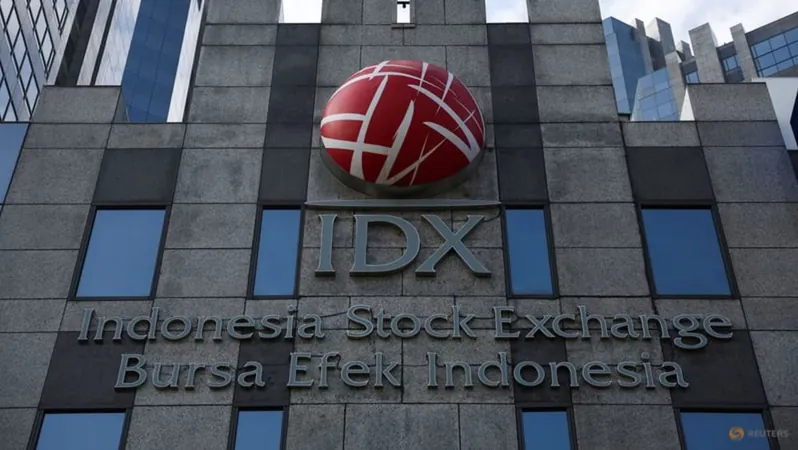
Indonesia's Stock Market Plummets 9% as Rupiah Hits Historic Low Amid Global Turmoil
2025-04-08
Author: Arjun
Indonesia's Stock Market Plummets 9% as Rupiah Hits Historic Low Amid Global Turmoil
JAKARTA: In a shocking turn of events, Indonesia's stock market plummeted by 9% on Tuesday morning (April 8), leading to an emergency 30-minute trading halt. As traders returned from an extended holiday break, the market reacted sharply to the global turbulence instigated by recent U.S. tariffs.
The Jakarta Composite Index fell by an alarming 9.2%, marking its lowest level since June 2021. Simultaneously, the Indonesian rupiah nosedived by 1.8%, hitting a staggering record low of 16,850 per U.S. dollar. This dramatic drop surpassed the previous lows set during the 1997 Asian Financial Crisis, showcasing the vulnerability of the Indonesian economy amidst global economic pressures.
Prior to the market's opening, the Indonesia Stock Exchange (IDX) had implemented new trading rules to manage the situation. A fall of 8% would prompt a 30-minute trading suspension—a shift from the previous threshold of 5%. If losses reached 15%, another pause would ensue, and a plunge beyond 20% would result in a full-day trading suspension. These measures are part of the IDX’s strategy to maintain investor confidence while allowing them the necessary time to assess information after the long trading interruption.
"These actions are precautionary,” IDX CEO Iman Rachman stated during a press conference. “We do not want to incite panic, but rather assure both domestic and foreign investors that we are giving them ample space to navigate these challenging conditions after the market closure."
Moreover, the exchange announced that should any individual stock drop by 15%, sell orders placed below that price would be automatically rejected, thus preventing further cascading losses.
The reopening of Indonesian markets on this day was highly anticipated, following a closure that dated back to March 27. It aligned with reactions to the U.S. announcement of a substantial 32% tariff on a variety of Indonesian products, a move that has shaken market confidence across Southeast Asia.
Economic analysts anticipate that the fallout from the U.S. tariffs and other global economic trends will continue to affect both local and international investment in Indonesia, urging stakeholders to closely monitor the developments. As uncertainty looms, investors are left asking: What’s next for Indonesia’s fragile economy? Will the rupiah regain its strength, or are further declines on the horizon?





 Brasil (PT)
Brasil (PT)
 Canada (EN)
Canada (EN)
 Chile (ES)
Chile (ES)
 Česko (CS)
Česko (CS)
 대한민국 (KO)
대한민국 (KO)
 España (ES)
España (ES)
 France (FR)
France (FR)
 Hong Kong (EN)
Hong Kong (EN)
 Italia (IT)
Italia (IT)
 日本 (JA)
日本 (JA)
 Magyarország (HU)
Magyarország (HU)
 Norge (NO)
Norge (NO)
 Polska (PL)
Polska (PL)
 Schweiz (DE)
Schweiz (DE)
 Singapore (EN)
Singapore (EN)
 Sverige (SV)
Sverige (SV)
 Suomi (FI)
Suomi (FI)
 Türkiye (TR)
Türkiye (TR)
 الإمارات العربية المتحدة (AR)
الإمارات العربية المتحدة (AR)